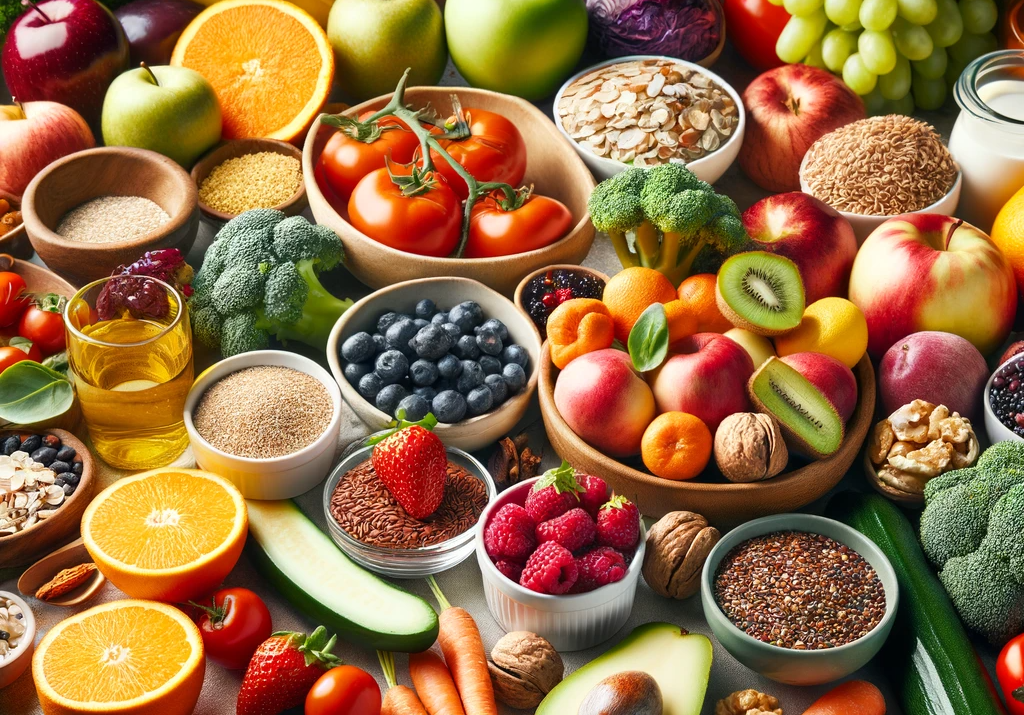Your Easy, Breezy Fitness Transformation: Get Fit Like You're 20 Again!
Do you wake up with a stiff neck? Does your back ache as you get out of bed? Or, are you perhaps fitter than Cristiano Ronaldo himself?
If any 2 answers are yes, you'd want to read further.
And hey, if you're already outpacing Ronaldo, there's a spot waiting for you in Real Madrid! 😉
But for the rest of you, let's get started on your journey to physical reinvention.
Flashback to Your 20s: Kickstarting Your Fitness Transformation!
Remember when you were in your 20s?
Full of life! Wake up, Party, Sleep, Repeat. Be wasted on weekends.
Dance all night. Slept on the roads after 'this is my last'. Sneaking in at 4 am without waking up parents.

What a good life! You miss that, don't you? You wonder what is this life now.
Wake up, Work, Sleep, Repeat?
Too tired on the weekend that you just want to Netflix and chill? Order food, sleep on time, get 8 hours in, and be ready to work the next day! Woohoo! so exciting!
You are not alone. Welcome to the technology age. We are living a life of convenience. And it's not your fault.
There is still that spark left in you, to feel that adrenaline again, that dopamine again, and live young again! Maybe your awesome party days are behind you, but what about feeling energized again?

Today I will share 3 tips that will reignite your fitness flame in your 30s :)
First is the obvious one.
Strength Training: The (not so) Secret Sauce in Your Fitness Transformation
Cliche. But cliches often hold the truth. You must have overheard this phrase, 'We are not built for this sedentary life. Our ancestors hunted for a living.'
That is true. Sitting more than 8 hours a day is detrimental to your mental and physical health. I am not inventing this stuff. Scientific research has been conducted.
Mental health:
- A meta-analysis of 12 prospective studies involving 128,553 participants found a significant association between sedentary behavior and the risk of depression.
Physical health:
- Sedentary behaviors are associated with increased all-cause mortality, cardiovascular disease mortality, cancer risk, and risks of metabolic disorders such as diabetes mellitus, hypertension, and dyslipidemia.
Strength training just as little as 3 days a week can potentially reverse the side effects of an inactive lifestyle.
Here's a quick guide:
Divide your workouts into push-pull sessions.
- Start with a dynamic warmup - 10 minutes. Watch the video here.
1) Push: Dumbell Chest Press, Shoulder Press, Triceps Extension, Squats
2) Pull: Lat Pulldown, Seated rows, bicep curls, Deadlift
3 sets each. 12-15 reps for muscle growth, 3-5 reps for strength training. Adjusting the weights based on the type of training.

You can download the step-by-step guide here.
Eat to Transform: Nutritional Strategies for Your Physical Makeover
'You are what you eat'
70% of your transformation is diet and the rest is lifting weights.
To understand diet you need to understand 2 key concepts
1) Caloric intake
2) Nutrition
Caloric Intake
Let's break them down one by one.
1) An average person needs a caloric intake of 2,000 calories to carry out day-to-day activities. That can be considered as a benchmark.
Depending on the activity level, gender, age, and weight, it might vary.
But the north star is to start with the 2,000 mark.
Logic dictates, that if you want to lose weight, eat less than your benchmark. If you want to gain weight, eat more.
Calculate your minimum caloric intake, here
You'd think, oh god! I don't know how to count calories, or which food has how many calories. Big apple, small apple? Don't worry! That's why I am here. Here's a free tool for you to do just that. It will hardly take 2 minutes to log your food data.
Remember, 'what gets measured, gets managed'.
But can you eat whatever you want? Pizzas all day?
No. Let's see how you should break down your food (no pun intended 😉 )

Nutrition
i) Macronutrients
Macros are like your first child. Can't live without them.
3 types of macros.
- Fats:
- Crucial for energy storage, nutrient absorption (fat-soluble vitamins A, D, E, and K), insulating and protecting organs, and supporting cell growth.
- Healthy fats support heart health, aid in hormone production, and can improve blood cholesterol levels. However, excessive intake of unhealthy fats can increase the risk of heart disease and stroke.
- It is generally recommended that fats make up about 20-35% of your total daily caloric intake.
- However, it's important to focus on healthy fats, such as monounsaturated and polyunsaturated fats found in avocados, nuts, seeds, and fish, while limiting saturated and trans fats.
- Carbohydrates:
- The body's main source of energy, especially for the brain and central nervous system. They are vital for proper organ function, intestinal health, and waste elimination.
- Carbs provide quick energy and are essential for physical activity.
- They also impact mood and memory.
- However, too much sugar and refined carbs can lead to weight gain, blood sugar issues, and an increased risk of heart disease.
- Carbohydrates should constitute about 45-65% of your total daily calories.
- Opt for complex carbohydrates like whole grains, fruits, and vegetables, rather than simple sugars and refined carbs.
- Proteins:
- Fundamental for building and repairing tissues, making enzymes and hormones, and supporting bone, muscle, cartilage, skin, and blood health.
- Adequate protein intake is essential for muscle growth and repair, immune function, and maintaining a healthy metabolism.
- Protein should account for about 10-35% of your total daily caloric intake.
- Good sources include lean meats, poultry, fish, beans, legumes, nuts, and dairy products.
- Fibers:
- Though not traditionally categorized as a macronutrient, dietary fiber is crucial for digestive health, helping to maintain bowel regularity, prevent constipation, and lower cholesterol levels.
- They are part of the Carbohydrates family
- The recommended daily intake of fiber is about 25 grams for women and 38 grams for men.
- Sources include whole grains, fruits, vegetables, beans, nuts, and seeds.
- Fiber helps in weight management by making you feel full longer.
- It also plays a role in controlling blood sugar levels and reducing the risk of chronic diseases like type 2 diabetes and heart disease.
- Though not traditionally categorized as a macronutrient, dietary fiber is crucial for digestive health, helping to maintain bowel regularity, prevent constipation, and lower cholesterol levels.
Phew!! Information overload? Hang on for just 1 more minute and you'll know everything to get started with your transformation.
You will be able to detect myths from facts and build a healthier, stronger you.

Micro Nutrition
Micros are the second kid. Life becomes dull without them.
- Vitamins:
- Vitamins are organic compounds crucial for various bodily functions such as energy production, immune function, and blood clotting.
- There are 13 essential vitamins, including vitamins A, C, D, E, K, and B vitamins (such as B6, B12, niacin, riboflavin, and folate).
- Vitamins support a range of bodily functions. For example,
- vitamin D is essential for bone health,
- vitamin A supports vision and immune function, and
- B vitamins are crucial for energy metabolism and red blood cell production.
- Vitamins are organic compounds crucial for various bodily functions such as energy production, immune function, and blood clotting.
- Minerals:
- Minerals are inorganic elements that assist in body processes such as bone formation, heartbeat regulation, and hormone production.
- Essential minerals include calcium, phosphorus, potassium, sodium, magnesium, zinc, iron, copper, manganese, selenium, and iodine.
- Calcium is vital for bone health,
- iron is essential for transporting oxygen in the blood,
- zinc supports the immune system and wound healing
- potassium helps regulate fluid balance and nerve signals.
- Minerals are inorganic elements that assist in body processes such as bone formation, heartbeat regulation, and hormone production.
Both vitamins and minerals are crucial for maintaining good health.
You must obtain them through a balanced diet, as the human body cannot synthesize them in adequate amounts.
A diet rich in fruits, vegetables, whole grains, lean proteins, and dairy products usually provides sufficient micronutrients.
However, in some cases, supplementation may be necessary, especially for nutrients that are commonly deficient, like vitamin D and iron.
This is just scratching the surface! 1% of the total helpful information out there. If you want to take back control of your life, I have a special offer for you!
3) Stay fit, Stay Hungry:
I have designed this course specifically for high-achieving people like you.
Who wants to take back control of life
Live healthy, and actively.
Don't have time to go down the rabbit hole.
You do you. I have built the perfect course where you can find everything under 1 roof!
In just 10 hours, you'll get
All the information about how to lead a healthier life
- Exercise 101
- Nutrition 101
- Diet 101
- Sleep 101
- How to tailor your exercise and diet specifically for you
- and 10+ tools to save you hours of your time
